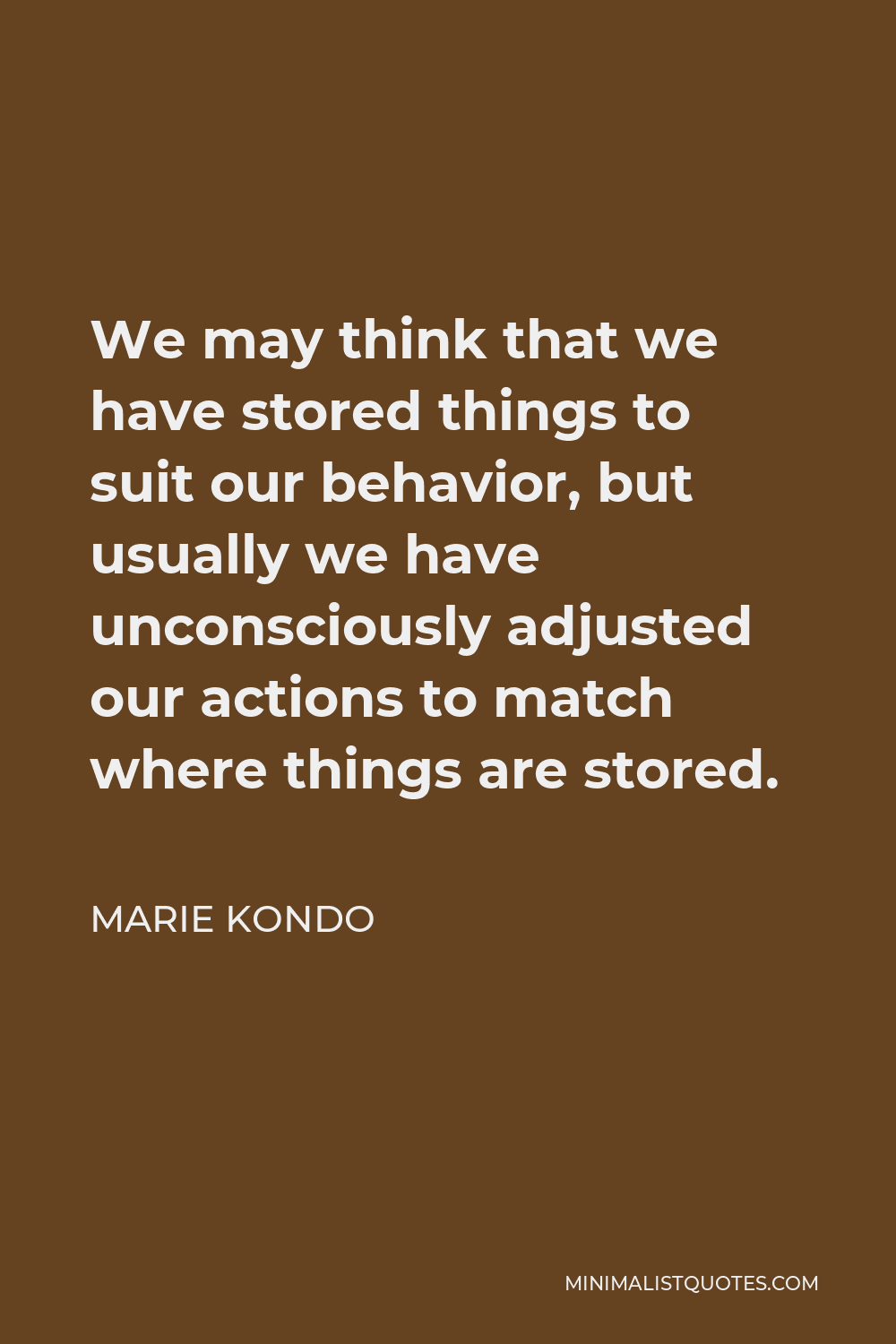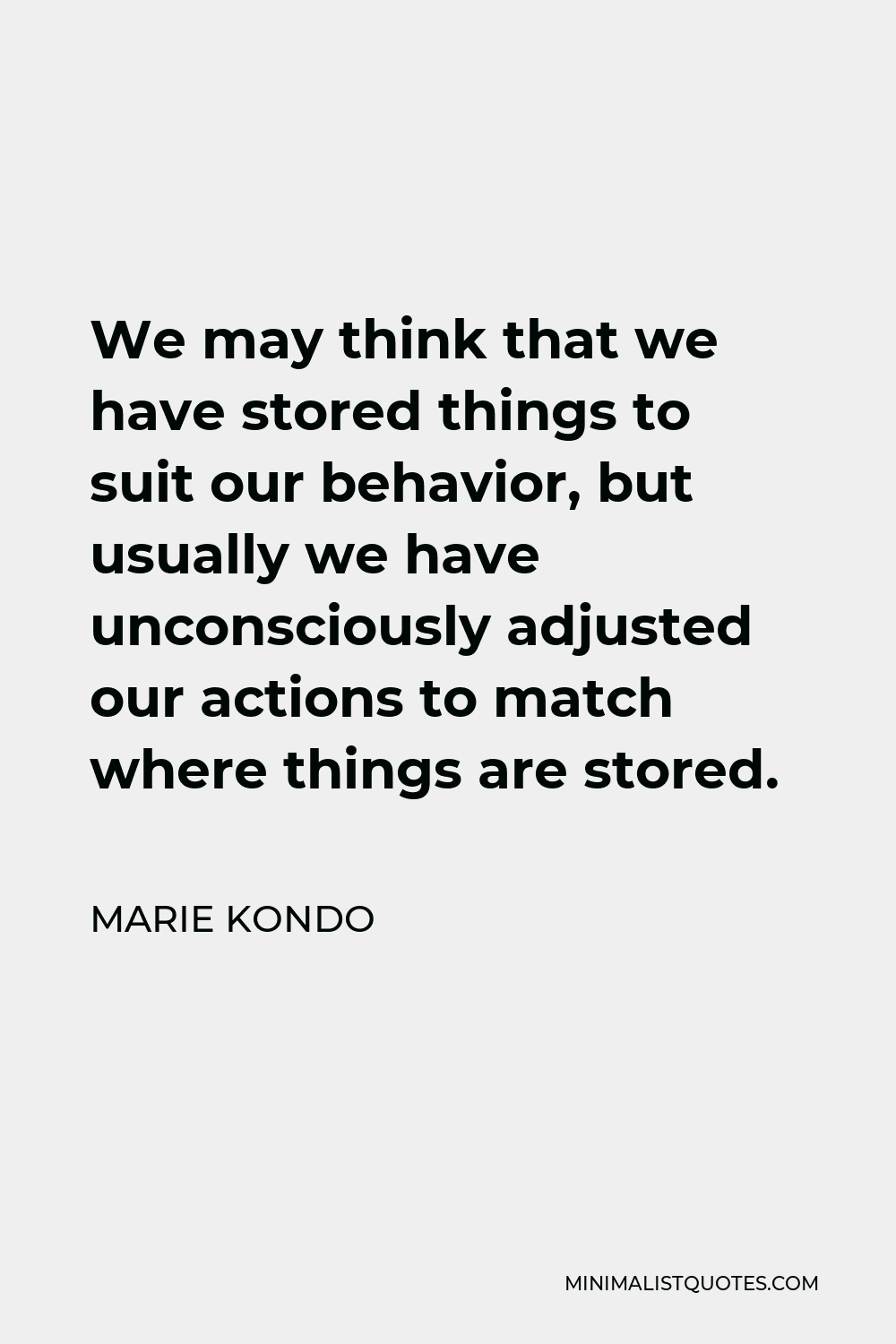Tidy a little a day and you’ll be tidying forever.
MARIE KONDOWe may think that we have stored things to suit our behavior, but usually we have unconsciously adjusted our actions to match where things are stored.
More Marie Kondo Quotes
-





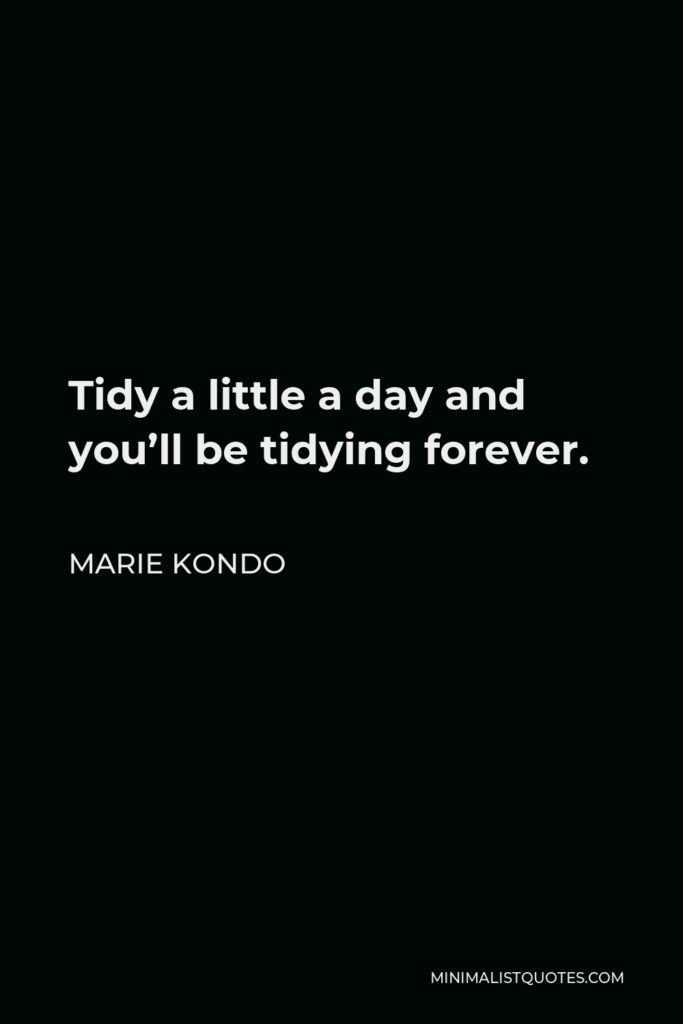

-







No matter how wonderful things used to be, we cannot live in the past. The joy and excitement we feel here and now are more important.
MARIE KONDO -





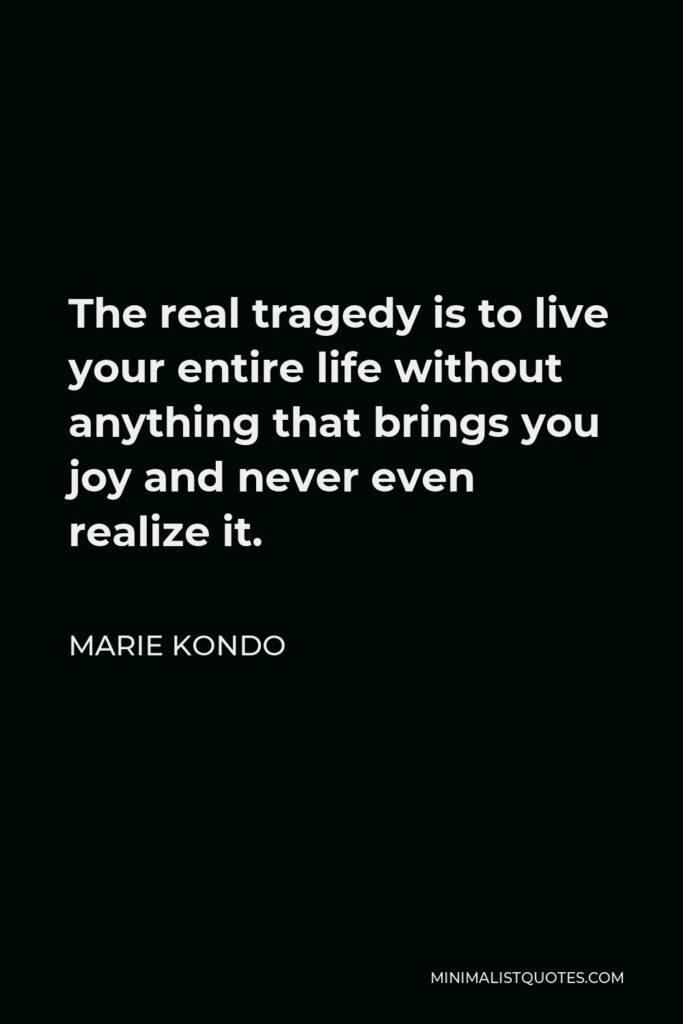

The real tragedy is to live your entire life without anything that brings you joy and never even realize it.
MARIE KONDO -







All you need to do is take the time to sit down and examine each item you own, decide whether you want to keep or discard it, and then choose where to put what you keep.
MARIE KONDO -







Keep only those things that speak to your heart. Then take the plunge and discard all the rest. By doing this, you can reset your life and embark on a new lifestyle.
MARIE KONDO -





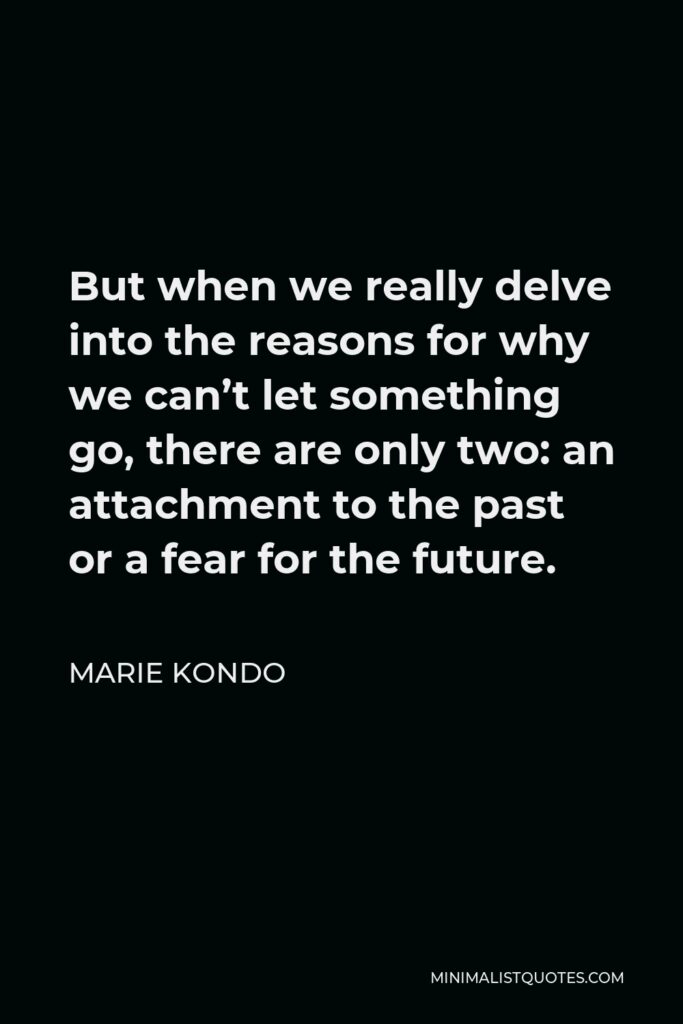

But when we really delve into the reasons for why we can’t let something go, there are only two: an attachment to the past or a fear for the future.
MARIE KONDO -





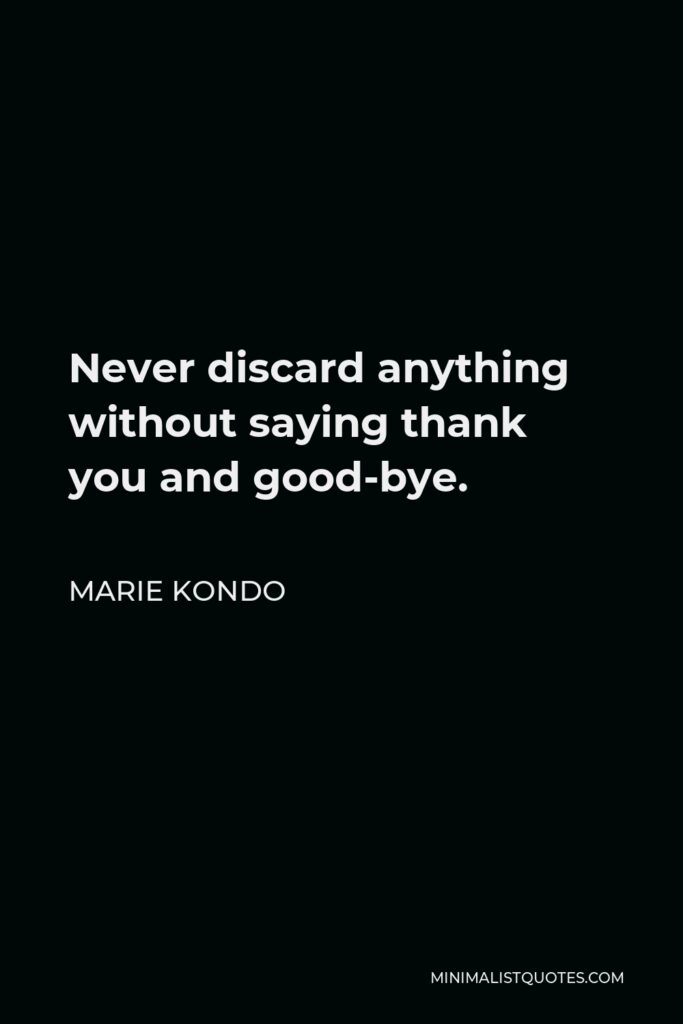

Never discard anything without saying thank you and good-bye.
MARIE KONDO -







Just because you dispose of something does not mean you give up past experiences or your identity.
MARIE KONDO -







The lives of those who tidy thoroughly and completely, in a single shot, are without exception dramatically altered.
MARIE KONDO -





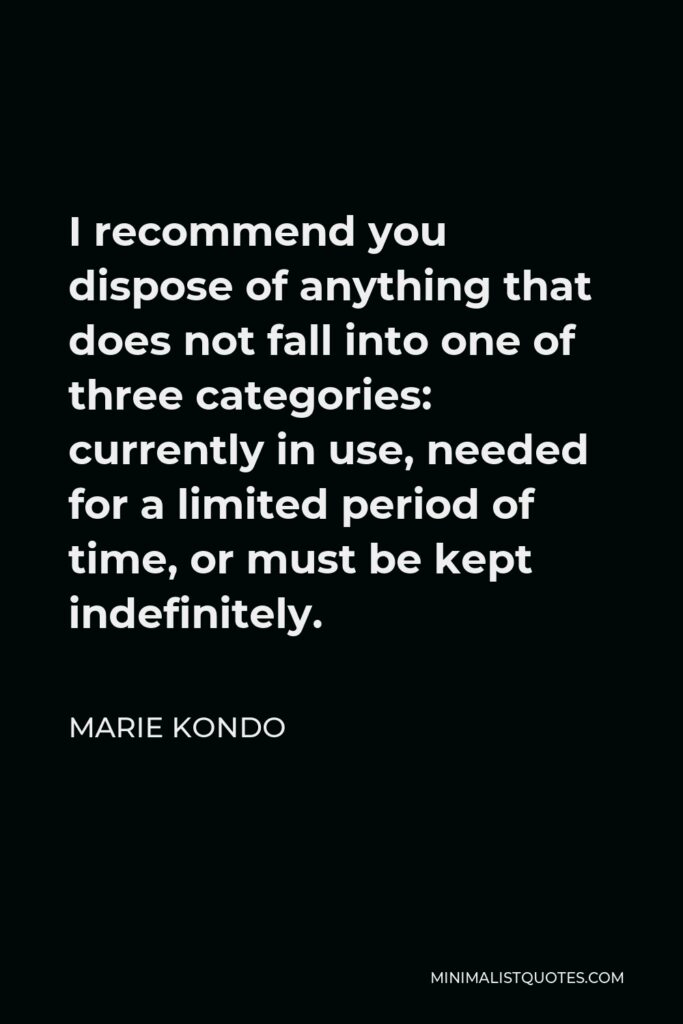

I recommend you dispose of anything that does not fall into one of three categories: currently in use, needed for a limited period of time, or must be kept indefinitely.
MARIE KONDO -





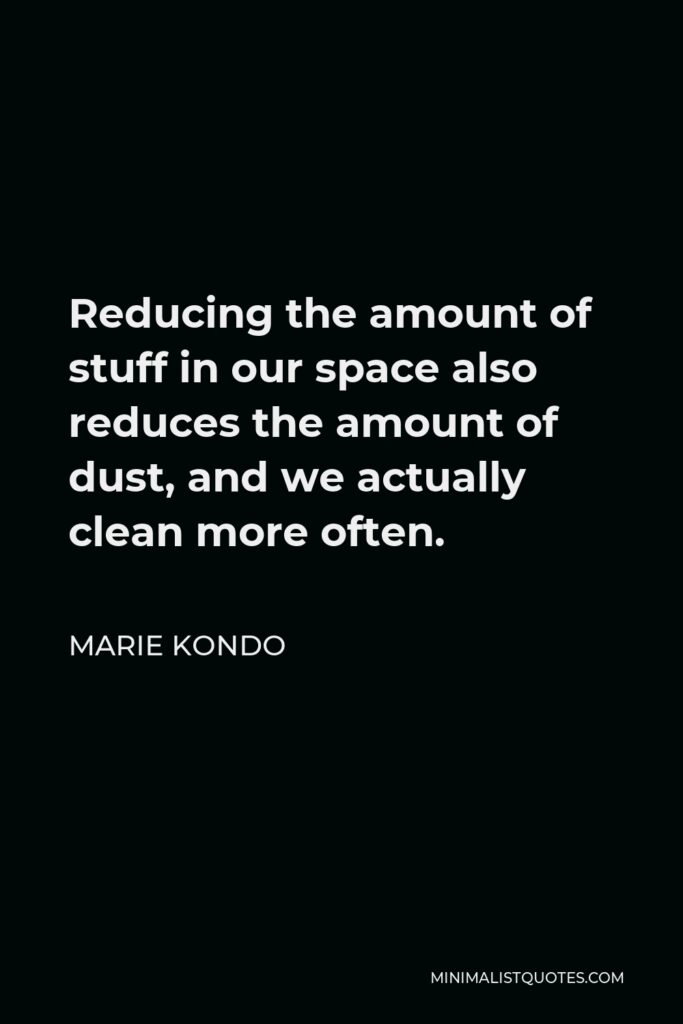

Reducing the amount of stuff in our space also reduces the amount of dust, and we actually clean more often.
MARIE KONDO -





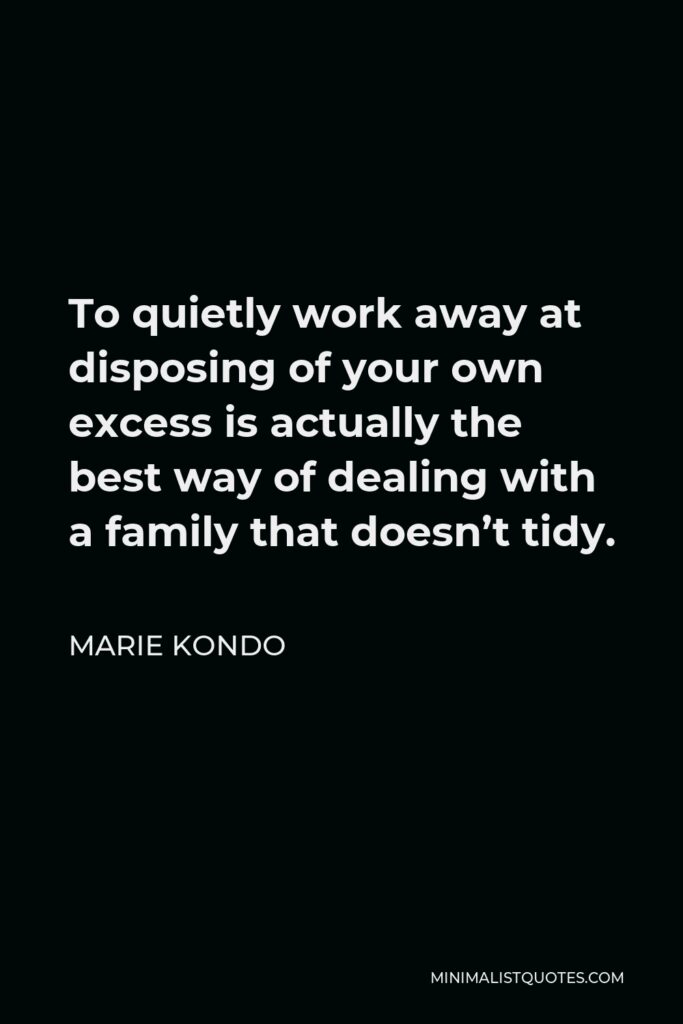

To quietly work away at disposing of your own excess is actually the best way of dealing with a family that doesn’t tidy.
MARIE KONDO -





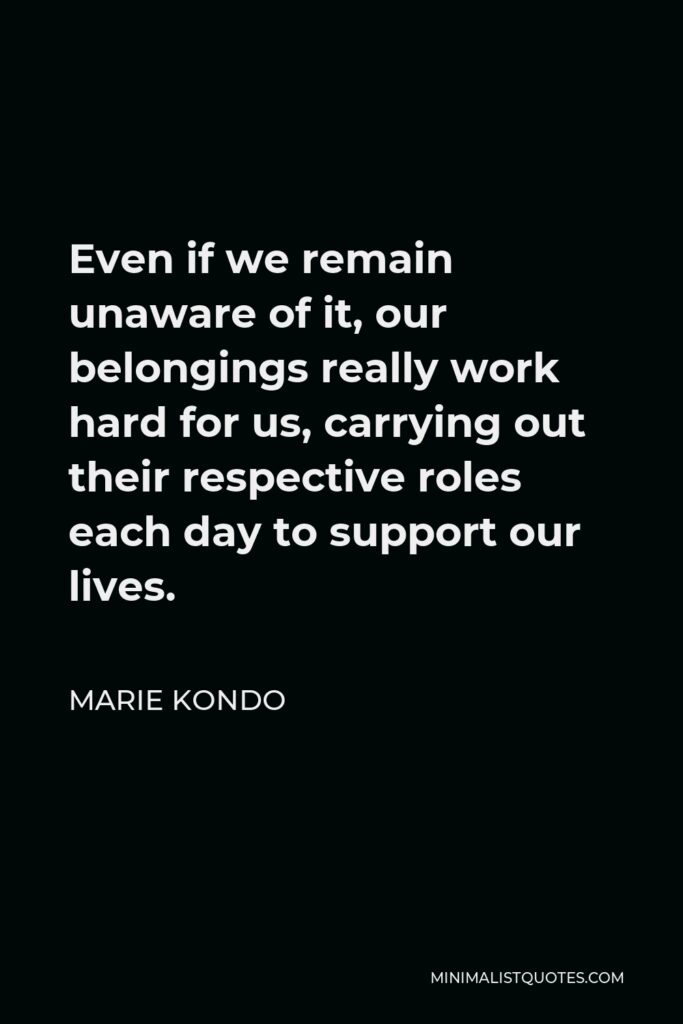

Even if we remain unaware of it, our belongings really work hard for us, carrying out their respective roles each day to support our lives.
MARIE KONDO -





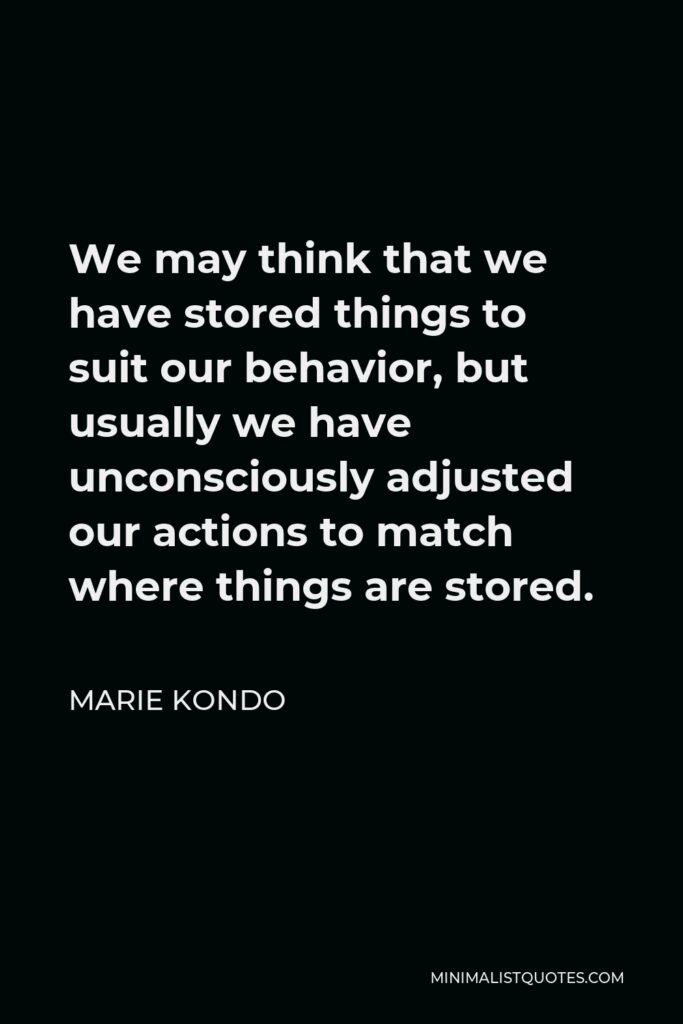

We may think that we have stored things to suit our behavior, but usually we have unconsciously adjusted our actions to match where things are stored.
MARIE KONDO -





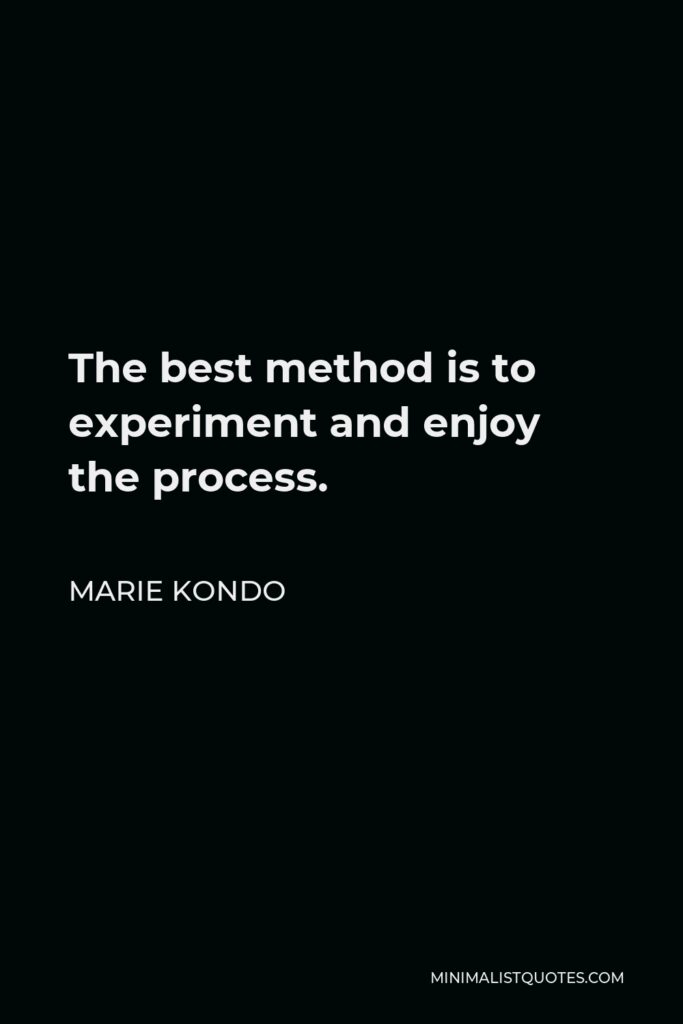

The best method is to experiment and enjoy the process.
MARIE KONDO -





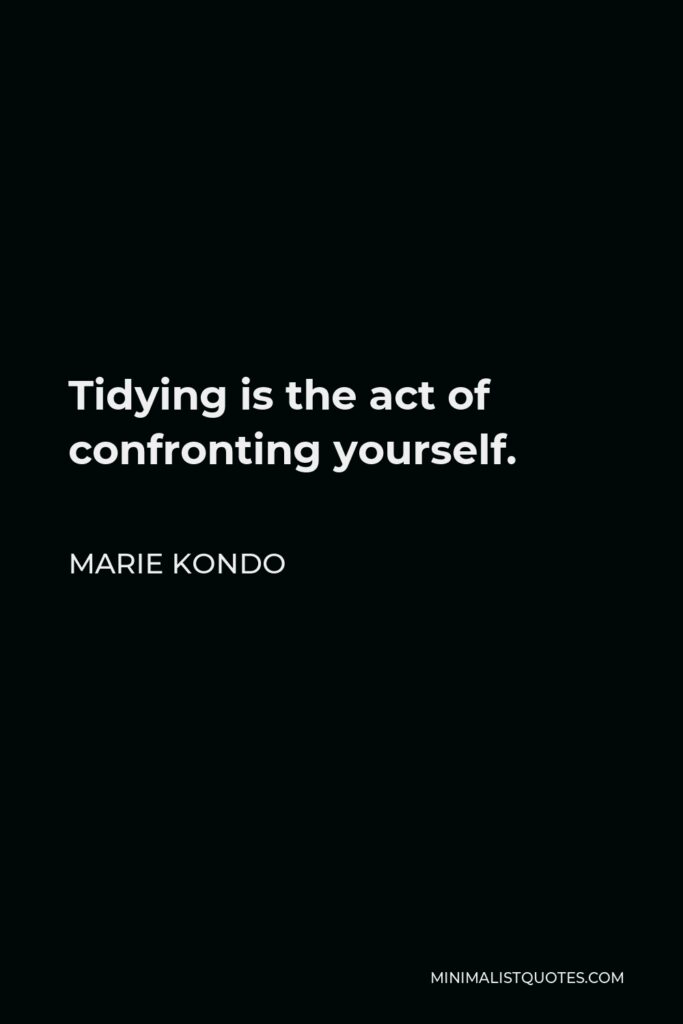

Tidying is the act of confronting yourself.
MARIE KONDO




